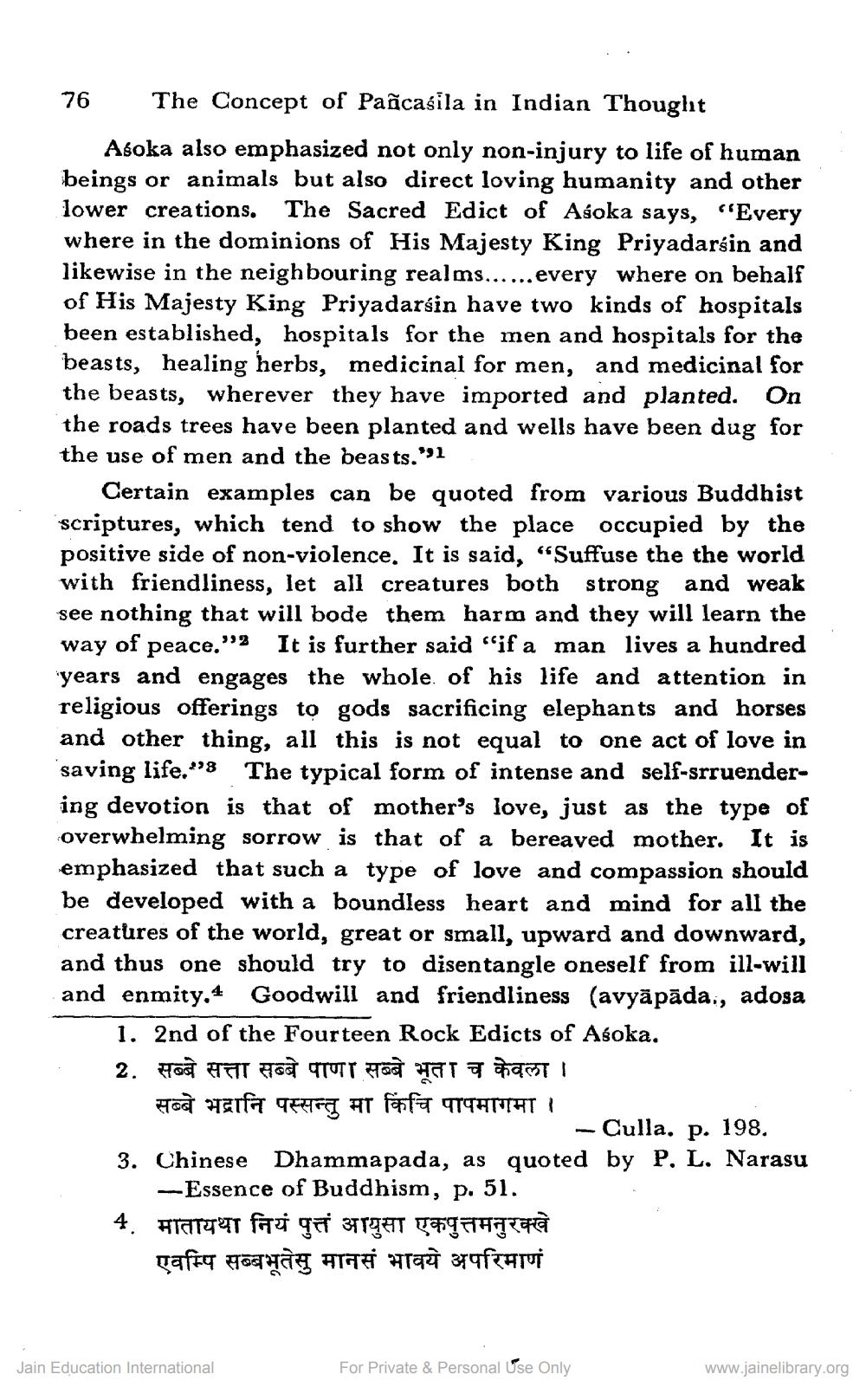________________
76 The Concept of Pancasila in Indian Thought
Aśoka also emphasized not only non-injury to life of human beings or animals but also direct loving humanity and other lower creations. The Sacred Edict of Aśoka says, "Every where in the dominions of His Majesty King Priyadarsin and likewise in the neighbouring realms......every where on behalf of His Majesty King Priyadarsin have two kinds of hospitals been established, hospitals for the men and hospitals for the beasts, healing herbs, medicinal for men, and medicinal for the beasts, wherever they have imported and planted. On the roads trees have been planted and wells have been dug for the use of men and the beasts."1
112
Certain examples can be quoted from various Buddhist scriptures, which tend to show the place occupied by the positive side of non-violence. It is said, "Suffuse the the world with friendliness, let all creatures both strong and weak see nothing that will bode them harm and they will learn the way of peace." It is further said "if a man lives a hundred years and engages the whole of his life and attention in religious offerings to gods sacrificing elephants and horses and other thing, all this is not equal to one act of love in saving life."8 The typical form of intense and self-srruendering devotion is that of mother's love, just as the type of overwhelming sorrow is that of a bereaved mother. It is emphasized that such a type of love and compassion should be developed with a boundless heart and mind for all the creatures of the world, great or small, upward and downward, and thus one should try to disentangle oneself from ill-will and enmity. Goodwill and friendliness (avyāpāda., adosa 1. 2nd of the Fourteen Rock Edicts of Aśoka.
2. सब्बे सत्ता सब्बे पाणा सब्बे भूता च केवला । सब्बे भद्रानि पस्सन्तु मा किंचि पापमागमा ।
3. Chinese Dhammapada, as quoted -Essence of Buddhism, p. 51. 4. मातायथा नियं पुत्तं आयुसा एकपुत्तमनुरक्खे एवम् सब्बभूते मानसं भावये अपरिमाणं
Jain Education International
For Private & Personal Use Only
Culla. p. 198. by P. L. Narasu
www.jainelibrary.org




